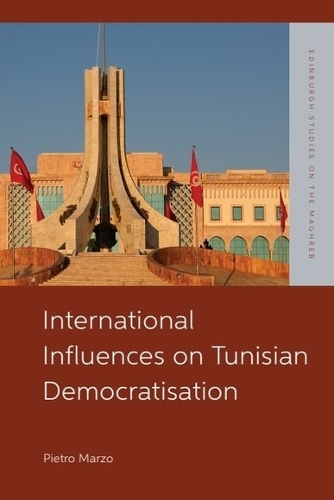
International Influences on Tunisian Democratisation
(Hardback)
Publishing Details
International Influences on Tunisian Democratisation
By (Author) Pietro Marzo
Edinburgh University Press
Edinburgh University Press
7th October 2025
United Kingdom
Classifications
General
Non Fiction
Regional / International studies
International relations
Political structures: democracy
Physical Properties
Hardback
208
Width 156mm, Height 234mm
Description
This book focuses on international influences and global factors that surrounded Ben Ali's regime breakdown and the democratization process in Tunisia. Relying on extensive fieldwork, the research explores the interplay between international and national actors and presents two main arguments. First, it shows that although Western states officially remained allies of Ben Ali until the end of his regime (1987-2011), democracy promoters and international actors supported interactions and connections among Tunisian individuals with critical views of Ben Ali. These activities fostered the emergence of alternative centres of power and would-be political coalitions, which eventually weakened the internal and external legitimacy of the Ben Ali regime. Second, the book argues that between 2011 and 2021 international assistance helped Tunisian transitional elites to build a procedural democracy. Yet foreign assistance and democracy promotion failed to boost more substantive aspects of democratization, indirectly contributing to the rise of popular disillusion with democracy.
Author Bio
Pietro Marzo is Assistant Professor at TELUQ University, Quebec Canada. He is an affiliated member of the Interdisciplinary Centre of Research for Africa and Middle East at Laval University. He has published several articles and book chapters on Tunisian politics, on the international relations of the MENA region and on research methodology.
